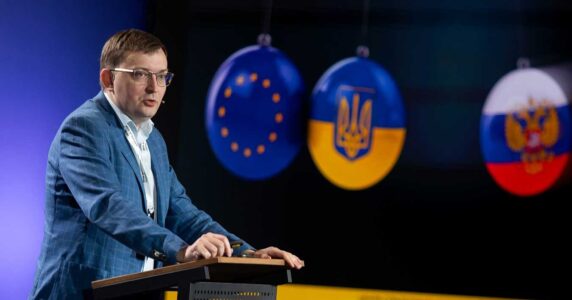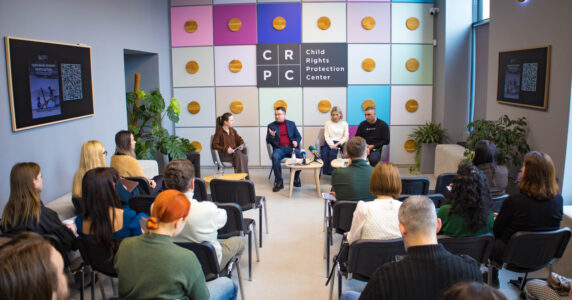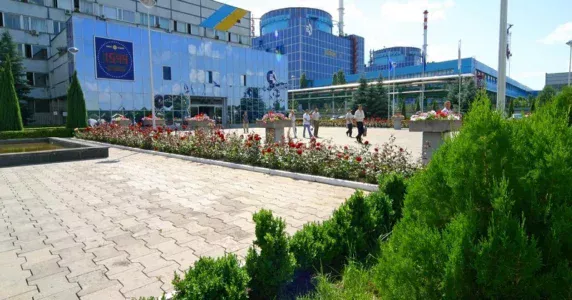Navigation and useful materials
Ukraine needs international support more than ever: Western weapons help to destroy the enemy effectively, and economic aid significantly mitigates the consequences of losing over 30% of its GDP.
The level of this aid significantly depends on public opinion in partner countries, which is directly influenced by the media, as foreign citizens mostly observe the war in Ukraine from the standpoint of their journalists.
For this reason, the Centre for Strategic Communication and Information Security and partners have surveyed foreign journalists who have been covering Russia’s war against Ukraine for almost a year now to find out about the conditions of their work: what problems they face, what they have been unable to handle, etc. But most importantly, do foreign media see any ways to simplify their work?
In this publication, we will present the key findings of the study and final recommendations. The full version of the survey will be presented soon to all participants in the process of cooperation with foreign media. We strongly believe that at least partial implementation of the recommendations provided will help Ukraine to improve the system of working with foreign audiences significantly.
Experts of the Kyiv International Institute of Sociology (KIIS) have surveyed foreign journalists from 28 countries who worked in Ukraine in 2022 at the request of the Centre for Strategic Communication and Information Security under the Ministry of Culture and Information Policy: Americans, Poles, the Spanish, and representatives of other countries. They shared what has been helpful or what prevented them from doing their job in Ukraine.
Primarily, foreign journalists pointed out the fact that audiences are interested in information connected with their own countries. This includes official visits of politicians, joint statements, assistance, stories of fellow citizens who are currently in Ukraine, etc.
“British media mainly would be interested whenever there is British involved, and then whenever there is British involved — that would mean also the British weapons being involved and that would mean also the visuals about it, and we didn’t have the opportunity to access such information, such opportunities to take such pictures,” shared a UK journalist. The ability to distribute such materials would help foreign media to cover the war in Ukraine more effectively.
Foreign journalists are also interested in the stories of ordinary Ukrainians. Audiences are interested in stories about how regular Ukrainians overcome the challenges of war.
More than half of the survey participants had the opportunity to communicate directly with representatives of the Armed Forces. This communication received the most positive feedback among the respondents. The journalists noted the professionalism and politeness of the soldiers, their openness in providing comments, and the opportunity to communicate with representatives of the Armed Forces in English — directly and without interpreters. There is a significant amount of information available on Twitter and official Telegram channels, including information in English.
At the same time, foreign journalists complain about the insufficient number of press officers. This directly affects the efficiency of the work of foreign media professionals because they are forced to wait in line to get the necessary information.
It is even more difficult for foreign journalists to gain access to the President of Ukraine or representatives of his Office. Only one in five survey participants who tried to communicate with the head of state or his spokespersons managed to do so.
Given the possibility of delays in communications with state bodies, journalists often decide not to waste time on it. They call the process itself complicated, long and unclear.
The experience of cooperation with Ukrainian fixers (journalists’ assistants who help them build communication with local residents and officials) left a positive impression on the majority of foreigners interviewed. The key problem could be the language barrier: it is not always easy to find a fixer with knowledge of foreign languages other than English.
“All of them were exquisitely wonderful. I do not have words enough to praise them about their knowledge, their support, their passion. And everything. I mean, there were professional moments, which were exuberant. There were personal moments, which will always stay with me until the time I live,” shared an Indian correspondent.
Most of the interviewees called the restriction of access to the liberated territories the most significant concern. Unlike others, these rules are not clearly prescribed and are applied most selectively.
As for accreditation, the majority of respondents (60%) obtained it easily. 37% called this process a significant problem.
A good step towards foreign journalists in Ukraine would be the “single window” policy — if there was a specific agency (preferably a governmental one) that would handle interaction with foreign media and have the necessary powers. This way, a foreign journalist would clearly know whom to approach to receive an opportunity to work in Ukraine or resolve any problems that may occur on site.
Foreign journalists also recommend introducing a state policy on accreditation — with clarification of a clear mechanism of interaction: both for journalists and for the entire chain of command of the Defence Forces. A necessary condition is a detailed, transparent procedure for obtaining accreditation. This would include clear requirements for media workers (including freelancers) and reducing the review period of applications to 7 working days. Establishing a feedback system could give journalists an understanding of the stage of consideration of their application, as well as the possibility to solve problems if they arise. The rules and grounds for losing accreditation should also be clearly written. So should be the rules to appeal the decision and get it renewed.
During the war, accreditation of foreign media is the task of the Ministry of Defence of Ukraine. At the same time, it is not the best solution for local governments or Armed Forces commands on site to introduce additional accreditations or registration procedures — this significantly complicates coordination and affects the effectiveness of journalists’ work directly “in the field.”
This issue is especially acute during trips to the frontline areas and liberated territories. Journalists ask to make this mechanism for media access more transparent. They would also prefer it if the practice of “local” accreditation was abolished, since it duplicates accreditation by the Armed Forces.
In addition, there is an urgent need to increase the number of press officers. Where access for journalists is impossible, press tours need to be held more often, with media workers involved in their development to consider journalists’ real needs.
In addition, the Ministry of Foreign Affairs of Ukraine should be involved in the process of issuing accreditation to foreign media. This will help to avoid occasional incidents when the process of obtaining permits to work in Ukraine takes enormous amounts of time (sometimes months) due to foreign media workers first being verified by the Ministry of Defence and the Security Service of Ukraine. In turn, the Ministry of Foreign Affairs, which includes the foreign apparatus of embassies, knows the media landscape of the countries from which requests for accreditation come best. This will also help to avoid scandals with the occasional withdrawal of accreditation of foreign journalists.
Another vector of work with foreign media they ask to consider is the opportunity for journalists to work directly in military units or in direct contact with them — this is the so-called embedded journalists. This is an internationally accepted practice which has already been practised in Ukraine.
Additional resources with useful information, which would be regularly updated, would be useful to foreign journalists. For example, there could be a video directory (video database) from military operators for accredited journalists. But it is important that it be in its original form — without editing and processing (for example, the addition of music, often unlicensed).
Various platforms for regular (in particular, informal) exchange of opinions and discussion of problems between journalists and press officers, representatives of state bodies could also become a good tool to make the work of all stakeholders more effective.
In addition, press services and communicators of state authorities should be reminded of their direct duty to provide feedback to journalists. The list of official contacts for journalists on websites of government agencies should be updated.
Taking these recommendations into account will not just simplify the work of foreign journalists in Ukraine. This will increase the efficiency and objectivity of informing foreign audiences about the war. It is important for maintaining a positive image of Ukraine in general and Ukrainians abroad in particular, and for broad support of our country and its fight against the aggressor. And for this, Ukraine’s struggle for life, freedom, and independence must constantly be in the focus of international attention.
Centre for Strategic Communication and Information Security
If you have found a spelling error, please, notify us by selecting that text and pressing Ctrl+Enter.


